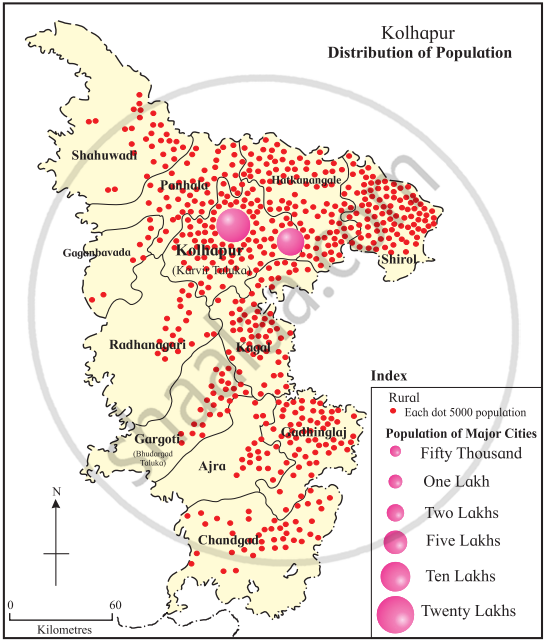Advertisements
Advertisements
Question
Which method will you use for the following information?
Distribution of domestic animals in the State.
Solution
Dot method.
Explanation:
The dot distribution map takes into account absolute values. This allows the proper representation of the distribution of domestic animals in a state. Also, the placement of the dots would allow one to see the major areas for domesticated animals.
APPEARS IN
RELATED QUESTIONS
Give reasons why following sentence is right or wrong:
The main aim of distributional maps is to show location.
Give reasons why following sentence is right or wrong:
In dot method, every dot should have an appropriate scale.
Give reasons why following sentence is right or wrong:
Distribution of various geographical elements can be shown using dot method.
Explain with reasons the method which is best suited to show the distribution of population in a region.
Which method will you use for the following information?
Talukawise wheat production in the district
Study the population distribution map of Kolhapur district and answer the following questions:
- Which method has been used to show the distribution of population in the district?
- Explain the directionwise distribution of the population from dense to sparse.
- What is the population shown by the largest circle? Which place is that?
- Which Taluka has the least population?

Now we will prepare a map using dot method. Carry out the following activity.
- See the map of Nandurbar given in fig. carefully. Draw it on another paper or tracing paper along with its taluka and district boundaries.
- Now see the population table given along the map. On the basis of the statistical data, decide the value of the dots considering the highest and the lowest values of population. For example, 1 dot = 10000 people, so you can decide how many dots to be given to each sub-administrative unit.
- To draw dots of the uniform size, take a ball pen refill. Close the back end of the refill with cotton. Press this end on a stamp-pad and draw the imprints of the dots wherever required.
- While placing the dots, consider the physiography, water sources, roads, rails, taluka and district headquarters as shown in the map in fig
- Compare your dot map with other students and arrange a discussion in the class

| S.No. | Talukas | Rural Population 2011 |
| 1. | Akkalkuwa | 2,15,974 |
| 2. | Akrani | 1,89,661 |
| 3. | Taloda | 1,33,291 |
| 4. | Shahada | 3,46,352 |
| 5. | Nandurbar | 2,56,409 |
| 6. | Nawapur | 2,31,134 |
